Cryptocurrency wallets allow you to send and receive digital currencies like Bitcoin and Ethereum by securely storing your private keys—essentially the passwords that grant you access to your assets—making them both secure and readily available.
In technical terms, a crypto wallet doesn’t physically hold your digital currency like a traditional wallet does with cash. Your assets exist on the blockchain, and only your private keys enable you to access and manage them. These keys allow you to execute transactions and provide proof of ownership of your digital assets.
In this discussion, we’ll explore what a cryptocurrency wallet is, differentiate between hot wallets and cold wallets, and examine some of the top crypto wallet applications currently available.
What is a crypto wallet?
A crypto wallet is an application designed to manage your cryptocurrency. It’s referred to as a “wallet” because, much like a traditional wallet for cash and cards, it provides the means to access your digital currency and securely stores the key pairs necessary for signing transactions, replacing physical items with information.
Modern blockchain wallets allow users to easily access the blockchain. Initially, sending cryptocurrency required the tedious process of entering lengthy keys manually, but today, most of this is handled seamlessly by software.
The first wallet was made by Satoshi Nakamoto, the creator of Bitcoin (BTC). The second wallet was owned by Hal Finney, who allegedly ran the BTC client software and engaged with Nakamoto. The cryptocurrency wave commenced when Nakamoto transferred ten BTC to Finney as a test.
Nearly all crypto wallets come with dedicated applications for managing cryptocurrency, allowing users to deposit and withdraw assets from online exchanges.
Now that we understand what cryptocurrency wallets are, let’s examine the key distinctions between cold and hot wallets.
Types of crypto wallets: Hot wallets vs cold wallets
The two main categories of cryptocurrency wallets are hot wallets and cold wallets. Let’s take a closer look at each type.
What is a hot wallet?
Hot wallets—also referred to as online or custodial wallets—are hosted by third parties that manage your keys on your behalf. These wallets may offer robust security features akin to those used by businesses to safeguard their data and can be accessed by customers of specific cryptocurrency exchanges.
Hot wallets can be applications for desktops and mobile devices. They enable users to access their cryptocurrency, execute transactions, check their balances, and much more. If linked to a cryptocurrency exchange, some software wallets may also come with integrated features for easier trading and management.
What is a cold wallet?
Cold wallets—also known as non-custodial wallets—require you to safeguard your keys. Most hardware wallets fall under this category and are generally considered a more secure option compared to online wallets for obvious reasons.
Cold wallets allow you to store and manage your private keys from your own device. These devices resemble USB drives, and many modern hardware wallets come with advanced functionalities.
You can connect cryptocurrency hardware wallets to your computer or smartphone to conduct transactions. Many of these devices are capable of signing cryptocurrency transactions instantly without needing to enter a key, minimizing the risk of hackers capturing your data.
After outlining the main differences between hot and cold wallets, the next pressing question is: what are the top wallets for cryptocurrency?
What is the best crypto wallet?
With countless wallets available since the rise of cryptocurrency wallets, choosing the right one can be challenging. To simplify the process, here are five highly regarded hardware wallets.
1. Trezor
Trezor is a frontrunner in the realm of hardware wallets, offering products such as the Model One and Safe 5. These devices are favored by cryptocurrency enthusiasts for their security features, user-friendly interface, and support for various cryptocurrencies.
While Trezor lacks built-in staking and non-fungible token management, it does provide a touchscreen for entry and highly secure offline storage. Notably, it does not support Bluetooth connectivity.
Among the best options for cryptocurrency storage, Trezor’s entry-level Model One is priced around $49, with a more advanced touchscreen variant priced at approximately $169 at last check.
Trezor also offers integrated services for staking and purchasing cryptocurrencies through its software, and is compatible with other cryptocurrency platforms like Exodus. You can use the Trezor Suite Lite app on both Android and iOS devices.
2. Exodus
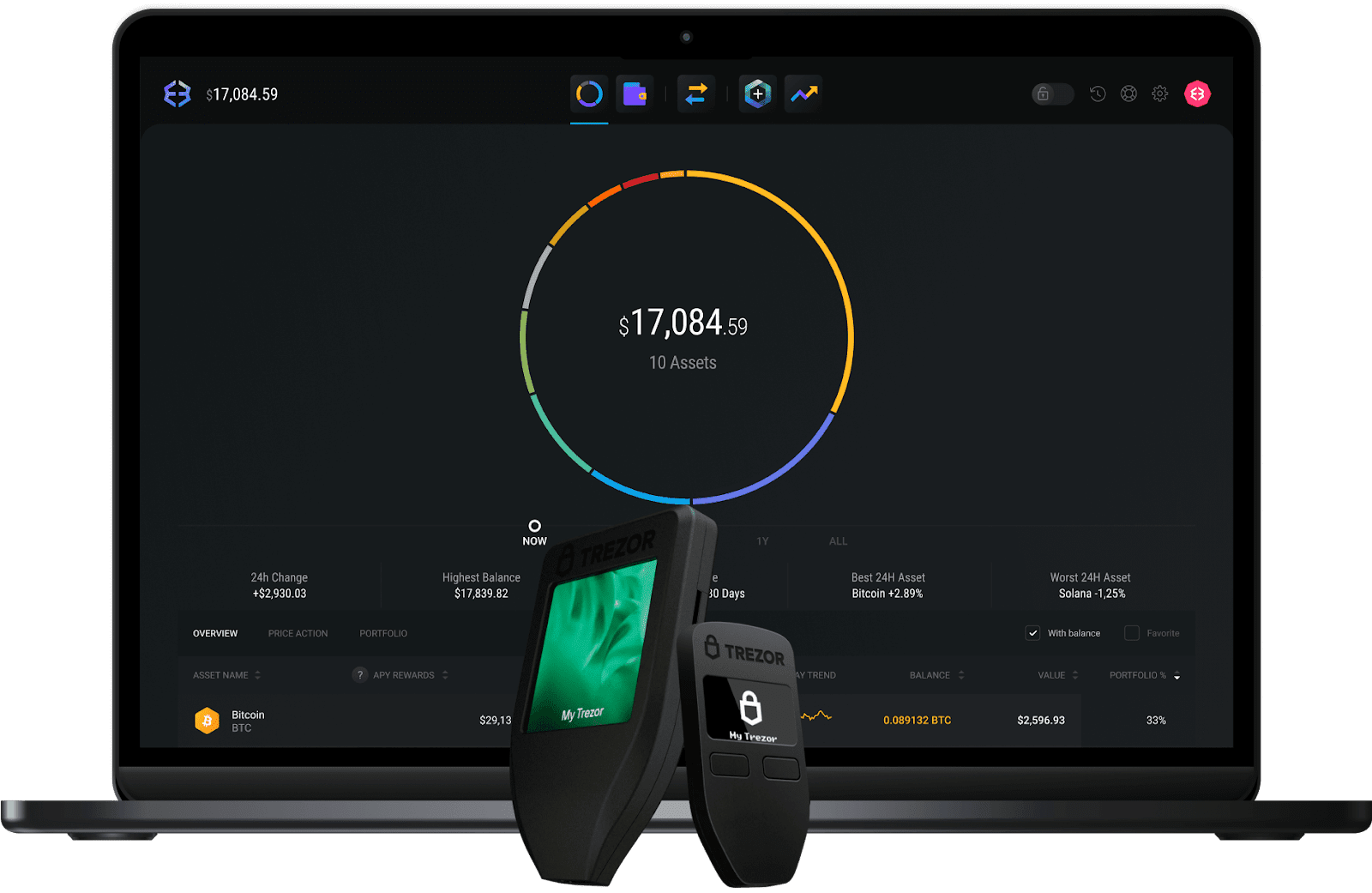
Launched in 2016, Exodus is a non-custodial wallet supporting multiple cryptocurrencies including Bitcoin. Its visually appealing design is packed with features such as in-wallet cryptocurrency exchange and staking capabilities, enabling users to earn passive income.
Exodus supports thousands of assets and allows users to swap over 100 digital currencies seamlessly within the wallet, maintaining security while doing so.
In response to user feedback about security, Exodus has collaborated with the Trezor hardware wallet, merging the convenience of the Exodus software wallet with the enhanced security of hardware wallets. Access to the Exodus wallet is secured with a password, which suffices for most users.
3. Ledger
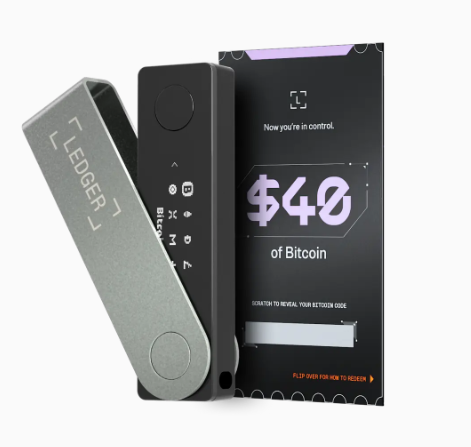
Ledger is one of the best-known names in the crypto wallet industry. It works with various popular software wallets like Crypto.com and Guarda, with prices ranging from approximately $79 to $249.
Ledger provides a standalone desktop client, a browser extension, and a well-reviewed mobile app. It emphasizes security through two-factor authentication and offers an educational library for users.
Ledger wallets support over 5,500 digital assets. Users can interact with decentralized finance applications, but it’s important to note that NFT management is not supported on the Nano Ledger S. Ledger’s integrated applications allow for buying, staking, and swapping currencies.
While Ledger Live software is open-source, the device firmware is not, and Ledger devices employ multisignature security along with Coinkite integration and two-factor authentication.
4. SafePal
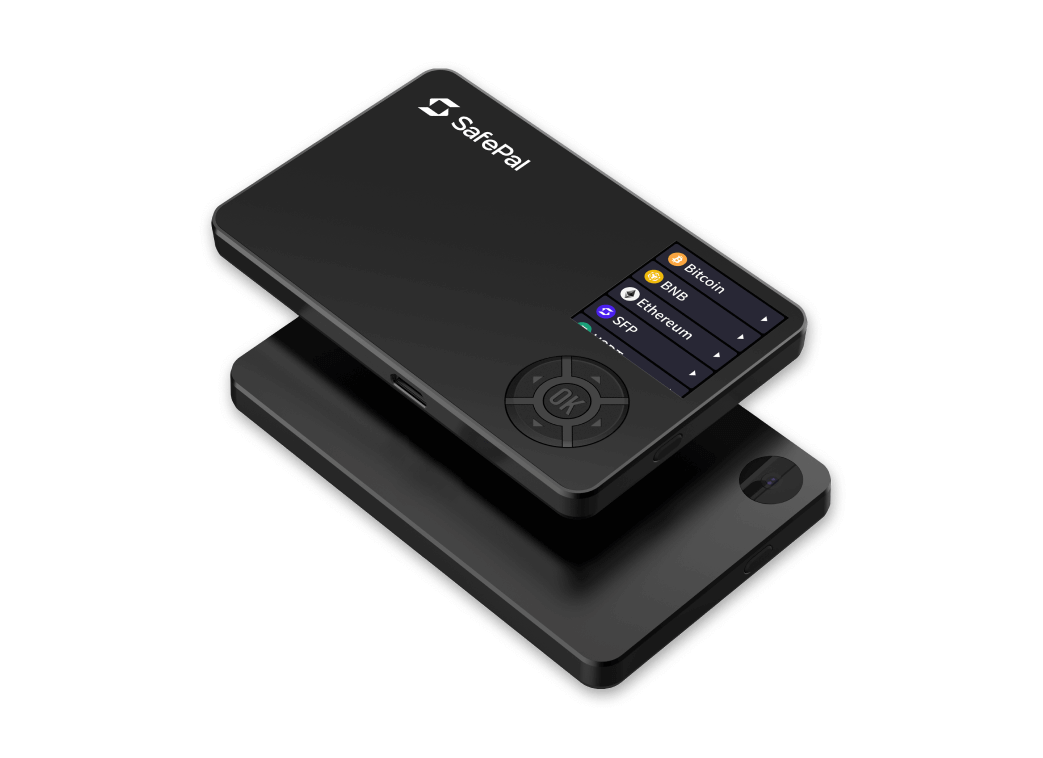
SafePal, established in 2018, offers comprehensive and secure crypto management solutions for both newcomers and seasoned professionals. It has also gained recognition following an initial investment from Binance Labs for its S1 hardware wallet. SafePal currently serves over seven million users globally with its unique hardware and software products.
The SafePal app allows users to manage their assets conveniently, supporting more than 100 blockchains (both EVM and non-EVM compatible) and numerous languages. The aim of SafePal is to empower users toward financial independence in the decentralized economy.
The S1 hardware wallet is priced at $49.99, which is reasonable for a crypto hardware wallet offering a digital interface and notable features.
5. KeepKey
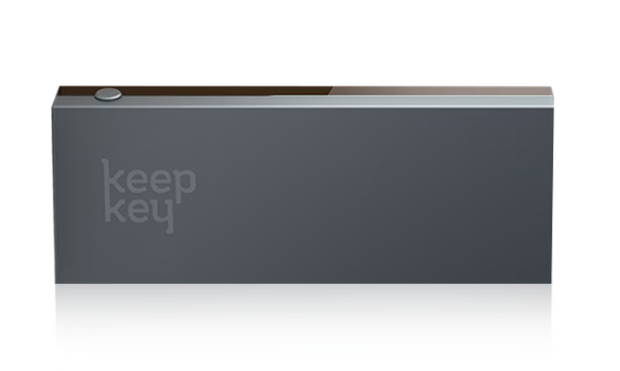
Acquired by ShapeShift in 2017, KeepKey’s most popular product is an offline wallet designed to protect cryptocurrency from hackers. Following its transition, KeepKey has maintained its independence, continuing to collaborate with ShapeShift and other decentralized applications.
Being open-source means that KeepKey’s code can be scrutinized for transparency and security.
Regarding pricing, KeepKey previously sold for $239, but has now reduced its price to about $50, making it an appealing option.
What is the best crypto mobile wallet?
While hardware wallets may offer enhanced security, they lack accessibility because most do not feature an online-friendly interface. This is where hot wallets come into play, as they all provide simple applications that facilitate the storage and withdrawal of cryptocurrencies via mobile devices. Let’s explore some of the top mobile options.
1. Coinbase Wallet
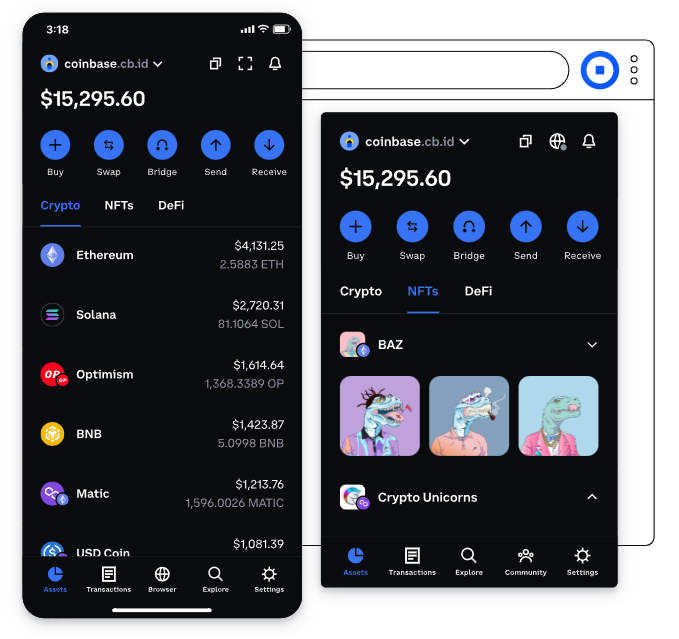
Created by a leading U.S. cryptocurrency exchange, Coinbase Wallet is a self-custody wallet that gives users exclusive control over their digital assets and private keys, distinguishing it from the custodial wallets offered by exchanges.
This decentralized wallet is designed to manage NFTs (non-fungible tokens), store cryptocurrencies, and interact with decentralized apps (dApps).
Coinbase Wallet supports a variety of cryptocurrencies, including popular options like Bitcoin, Ethereum, Litecoin, and ERC-20 tokens. It also allows users to store NFTs on platforms like Polygon and Ethereum.
The wallet’s intuitive interface simplifies the transfer, receipt, and management of cryptocurrency assets, making it appealing to both beginners and experienced users alike.
Using non-custodial technology means private keys are only available to the user and are stored locally on the device in an encrypted format. For increased security, Coinbase Wallet offers biometric verification, such as fingerprint or face recognition, making unauthorized access more difficult. Users receive a 12-word recovery phrase that must be carefully secured, as it is critical for recovering access if a device is lost or compromised.
2. Metamask
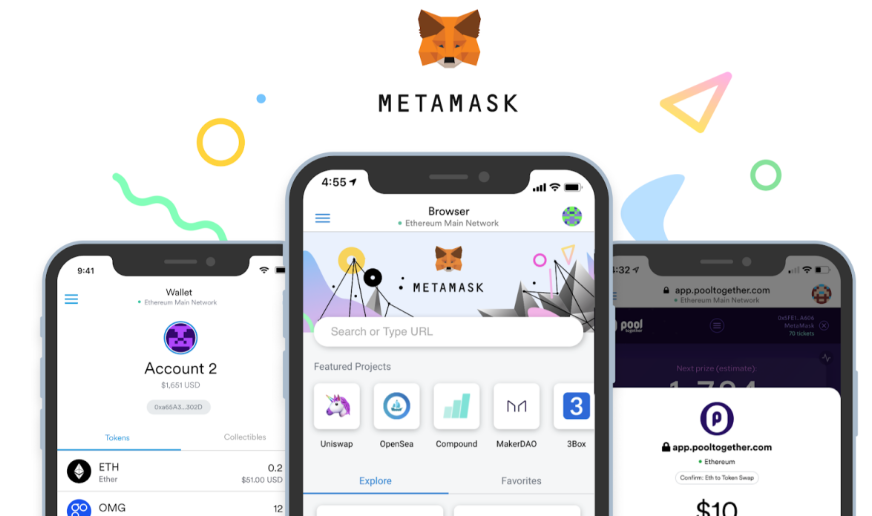
MetaMask is a popular browser extension and cryptocurrency wallet that connects users to the Ethereum blockchain. It enables seamless interaction with the Ethereum ecosystem—home to a myriad of decentralized applications (dApps)—without requiring users to download the entire blockchain.
This wallet is compatible with major browsers like Chrome, Firefox, Brave, and Microsoft Edge. In addition to ETH, it supports tokens developed under the ERC-20 and ERC-721 standards.
3. Trust Wallet
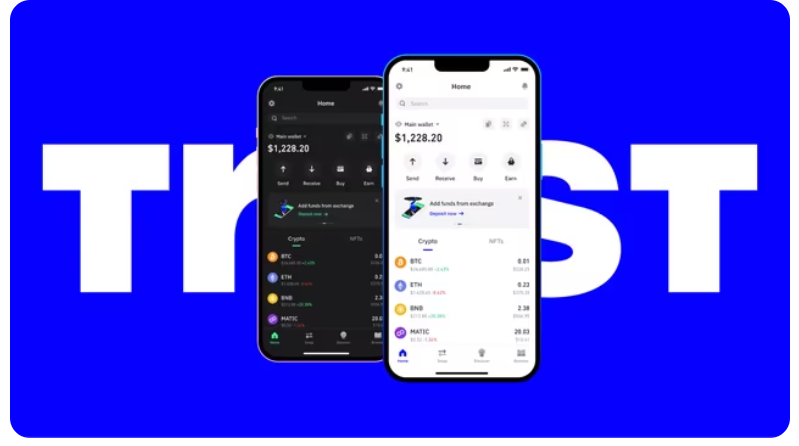
Trust Wallet is a secure, open-source crypto wallet designed for mobile users. Acquired by Binance in 2018, it supports a wide variety of blockchain networks and currencies, primarily those related to Ethereum and other compatible chains. The wallet makes it easy for novices and experienced users to send, receive, store, and stake their cryptocurrency.
With private keys stored locally rather than on servers, Trust Wallet offers enhanced security. Its simplistic design is user-friendly for beginners and boasts advanced features for knowledgeable users. However, the lack of a desktop interface can be a downside for users who prefer desktop access, and, like most mobile wallets, it requires an internet connection for transactions.
4. Phantom Wallet

Phantom offers a non-custodial wallet and browser extension that enables users to manage digital assets and interact with decentralized applications and smart contracts. Non-custodial implies that users retain control over their confidential information rather than storing assets in a centralized location.
Users are responsible for safeguarding their Phantom wallet assets much like they would protect their physical wallet from theft. Be cautious when seeking help through open-source platforms, as some individuals may impersonate support staff; always refer to Phantom’s official documentation for assistance, and remember that they will never ask for your private keys or seed phrase!
5. Zengo Wallet
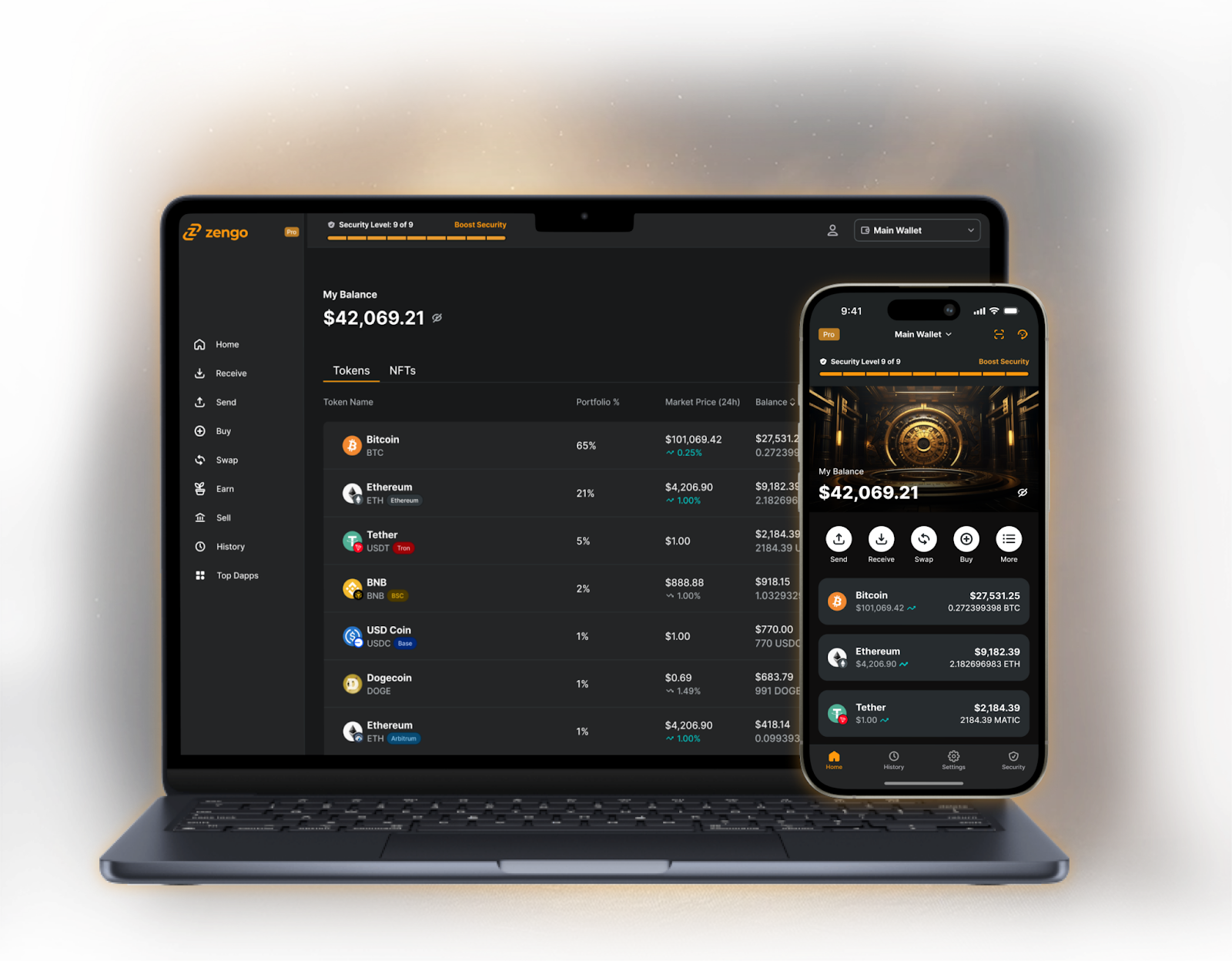
Zengo wallet utilizes multi-party computation (MPC) technology to provide security for user accounts. Since its launch in 2019, it has never been breached, boasting built-in security features to protect over a million users’ assets.
Security features in Zengo include facial recognition, threshold key signatures, and three-factor authentication. The revolutionary MPC technology provides a backup system that avoids a single point of failure, making it extremely difficult to hack user funds.
Additionally, the Zengo wallet is free and available on both iOS and Android platforms! Although there is a subscription model known as Zengo Pro, many users find the free Zengo Essentials more than sufficient.
In terms of supported assets, Zengo accommodates over 1,000 cryptocurrencies and tokens, including major currencies such as BTC, ETH, BNB, Dogecoin, Tezos, and a variety of stablecoins. Zengo also allows users to buy, sell, and exchange assets directly within the wallet.
Conclusion: Choosing the right crypto wallet for your needs
Knowing what a cryptocurrency wallet is vital for securely and effectively managing your digital assets. Whether you’re just beginning your crypto journey or you’re an experienced investor, selecting the appropriate wallet is critical for safeguarding your holdings.
For those in search of a hardware wallet, options like Trezor and Exodus are well-respected due to their security features and user interface. Trezor, recognized for its reliability in cold storage, offers offline protection for your private keys, while Exodus combines functionality and accessibility, allowing easy management of multiple cryptocurrencies and staking for passive income.
If you’re interested in decentralized finance, a DeFi wallet like the Zengo wallet brings robust security features, ensuring your funds are well-protected.
In summary, always ensure that your chosen wallet matches your investment strategy, offers necessary security features, and supports the cryptocurrencies you plan to use. Whether you seek the best wallet for your cryptocurrency or are exploring the wider world of DeFi options, the right tools can help you navigate the crypto market with assurance.
